Americans remember the War of 1812 as a second war of independence, as a war to force the British to give up practices that violated American rights and undermined US sovereignty. But this was a byproduct of a much larger conflict in Europe. Historian Donald R. Hickey of Wayne State College and author of several books on the War of 1812 explores these global contexts.
-
Article 1: 1812: A sideshow in the "Second Hundred Years' War?"
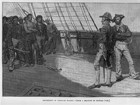
Americans remember the War of 1812 as a second war of independence, as a war to force the British to give up practices that violated American rights and undermined US sovereignty. But this war was a byproduct of a much larger conflict in Europe. Read more
-
Article 2: “A Mere Matter of Marching:" Stalemate at the Canadian border
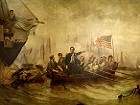
When the United States declared war on June 18, 1812, there was some hope among Republican leaders that the news would bring the British to their senses and that they would cave in to American demands. Read more
-
Article 3: Turning the tide: The British Empire strikes back
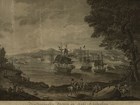
By the time the campaigning season in 1814 opened, the tide had turned against Napoleon in Europe, profoundly impacting the war in America. Napoleon’s invasion of Russia in June 1812 ended in disaster, and in October 1813 Britain’s allies on the Continent won a major victory at Leipzig. With the war on the Continent turning against Napoleon, the British in late 1813 began cautiously redeploying forces to America, and thereafter their prospects in both wars steadily improved. Read more
-
Article 4: Probing for Peace: Weighing the Burdens of War on Two Continents
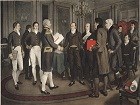
Just as the course of the war was influenced by developments in Europe, so, too, were the peace negotiations. The two warring nations sent peace delegations to Ghent in modern-day Belgium for talks that got underway in August 1814. Because the British had scrapped the Order-in-Council shortly after war had been declared, the only major outstanding issue was impressment. By the time the talks began, the United States had dropped this issue, paving a rocky road to peace. Read more
-
Article 5: "Released from the Millstone of an American War:" The News of Peace
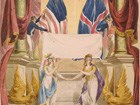
The conclusion of the War of 1812 was eagerly anticipated. Expensive and unpopular among both British and American citizens, the news of peace was greeted enthusiastically by everyone affected by the war. Read more
